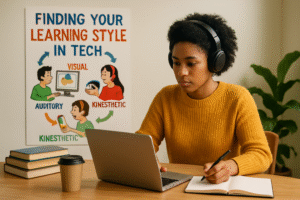
Budget-friendly ways to learn IT
In the rapidly evolving world of technology, access to quality IT education is no longer a privilege reserved for those with deep pockets or elite backgrounds. The digital age has democratized learning, offering a wealth of resources for anyone with curiosity and an internet connection. Whether you’re contemplating a career switch, seeking to upskill, or supporting neurodivergent learners, there are countless budget-friendly paths to mastering IT. Let’s explore how you can build a robust foundation in technology without compromising on quality—or draining your bank account.
Challenging the Myth: IT Education Is Not Just for the Few
For decades, the IT field seemed daunting, expensive, and exclusive. Prestigious universities and costly bootcamps dominated the conversation. But today, this paradigm has shifted. Open-source communities, online courses, and peer-to-peer learning have cracked the gates wide open. The key is knowing where to look and how to structure your self-directed journey.
“Learning IT today is less about finding the right school and more about building the right toolkit, mindset, and network.”
Why Cost Still Matters—And How to Navigate It
While some equate higher price tags with better outcomes, research and real-world success stories reveal that effective learning does not require exorbitant spending. In fact, many professionals in tech credit their progress to resourcefulness and community support, not high tuition fees.
Online Course Platforms: Your First Step
One of the most accessible gateways into IT is the plethora of online course platforms. These range from fully free to “freemium” models, where basic content is free and advanced features are unlocked for a modest fee. Here are some reliable portals:
- Coursera & edX: Offer university-level courses from institutions like MIT and Stanford. While you can audit most courses for free, you only pay if you want a certificate.
- Codecademy & freeCodeCamp: Interactive and beginner-friendly, they focus on coding, web development, and data science. All core content on freeCodeCamp is entirely free.
- Khan Academy: A nonprofit providing comprehensive, accessible lessons in computer science and mathematics, all for free.
- OpenClassrooms & FutureLearn: Offer a mix of free and paid content, often with community support or mentorship elements.
By auditing courses or following a self-paced curriculum, you can amass a solid knowledge base—without committing to expensive, rigid programs.
Specialized Nonprofits and Foundations
Many organizations are dedicated to increasing diversity and accessibility in tech. For women, neurodivergent learners, and underrepresented groups, these are invaluable:
- Women Who Code, Black Girls Code, Girls Who Code: Offer workshops, mentorship, and community events—often free or low-cost.
- Neurodiversity in Tech: Provides resources, peer support, and networking opportunities tailored for neurodivergent individuals.
- The Odin Project: Open-source, project-based learning for web development, built and maintained by volunteers.
These communities not only teach technical skills but also foster networking, career coaching, and a sense of belonging.
Open Educational Resources (OER): The Underrated Goldmine
Open Educational Resources are freely accessible, openly licensed learning materials. Unlike many commercial platforms, OERs allow you to remix, adapt, and share content. For independent learners, this flexibility is crucial.
- MIT OpenCourseWare: Full courses, including lectures, assignments, and exams, available to anyone.
- Saylor Academy: Self-paced courses in computer science and IT, with optional low-cost certification exams.
- CS50 by Harvard: One of the world’s most popular introductory computer science courses, available for free online.
By leveraging these resources, you can design a curriculum that matches your pace and interests, whether you’re learning Python or exploring cloud architecture.
Learning by Doing: Projects and Open Source
Theoretical knowledge is vital, but real-world projects are where skills solidify. Contributing to open-source projects not only builds your portfolio but also connects you to global communities:
- GitHub & GitLab: Participate in coding, documentation, or even project management.
- Hackathons & Code Sprints: Many are virtual and free to enter, offering mentorship, teamwork, and exposure to emerging technologies.
Don’t underestimate the power of building small, personal projects—websites, automation scripts, or data dashboards. These tangible outputs often become the centerpiece of your resume or portfolio.
“Your first ‘hello world’ app is as much a milestone as any credential. Celebrate the small wins—they’re proof of progress.”
Leveraging Community: Forums, Meetups, and Peer Learning
Learning in isolation can be daunting, but online forums and local meetups offer camaraderie, advice, and troubleshooting. For women and neurodivergent learners, these spaces can be especially empowering.
- Stack Overflow & Reddit: Ask questions, share resources, and learn from others’ experiences.
- Meetup.com: Find (often free) local events or virtual groups focused on coding, data science, and women in tech.
- Discord & Slack Communities: Join interest-based groups for real-time collaboration and support.
Mentorship is another powerful tool. Many tech professionals are eager to “pay it forward.” Reach out through LinkedIn, Twitter, or community events—most are happy to offer guidance or feedback.
Strategies for Neurodivergent Learners
Neurodivergent individuals—those with ADHD, autism, dyslexia, and other diverse cognitive profiles—bring unique strengths to tech. But traditional learning structures can pose challenges. Here are some actionable tips:
- Break content into small, manageable chunks—set timers and take regular breaks.
- Use visual tools, mind maps, or color-coded notes to reinforce concepts.
- Seek platforms with built-in accessibility features (captions, screen readers, adjustable speed).
- Join support groups to share strategies and celebrate achievements.
The flexibility of online and self-paced learning is especially beneficial, allowing you to customize your journey to fit your strengths and needs.
Budget-Friendly Certifications: When to Invest
While self-learning is invaluable, certain certifications can open doors—especially for those entering the workforce or pivoting careers. The good news: many industry-recognized certifications are affordable or come with free preparation resources.
- Google IT Support Professional Certificate: Offered on Coursera, often with financial aid available.
- CompTIA IT Fundamentals (ITF+): Entry-level, with free study guides and low exam fees.
- Microsoft Learn: Free learning paths, with optional paid exams for certification in Azure, Microsoft 365, and more.
- AWS Certified Cloud Practitioner: Amazon offers free training, and the exam is relatively inexpensive.
Tip: Many companies and nonprofits offer scholarships or vouchers for certification exams—especially for women, underrepresented minorities, and neurodivergent candidates.
Maximizing Value: Textbooks, Libraries, and Public Resources
Don’t overlook traditional resources. Public libraries increasingly offer free access to digital courses (LinkedIn Learning, O’Reilly), e-books, and study groups. Many universities publish textbooks online under a Creative Commons license, making high-quality materials available at zero cost.
Consider secondhand bookstores, campus exchanges, or digital lending libraries for affordable access to up-to-date content.
Building a Personalized, Sustainable Learning Path
The most successful learners are those who play to their strengths, interests, and schedules. Here’s how to craft a budget-friendly, effective study plan:
- Set clear, achievable goals: Define what you want—whether it’s a new job, a side project, or simply a deeper understanding of technology.
- Mix and match resources: Combine video lectures, written tutorials, hands-on labs, and community support.
- Track progress: Use online trackers, journals, or visual boards to stay motivated and accountable.
- Reflect and adapt: Regularly assess what’s working, and don’t hesitate to pivot if your interests or circumstances change.
Remember, learning is not a linear race but a dynamic, personal journey.
“Technology belongs to all of us. The greatest investment you can make is in curiosity, persistence, and community.”
Inclusive and Accessible Tech Education for All
As the tech industry strives to become more inclusive, budget-friendly learning paths play a pivotal role. For women, neurodivergent individuals, and those from nontraditional backgrounds, accessible education is not just a stepping stone—it’s an invitation to shape the future of technology itself.
Embrace the abundance of free and low-cost resources, the generosity of online communities, and the satisfaction of building skills on your own terms. Whether you’re writing your first line of code at midnight, joining a weekend hackathon, or guiding a child through their first robotics kit, know that you’re part of a vibrant, ever-expanding ecosystem.
With patience, determination, and a willingness to seek support, anyone can master IT without breaking the bank. The tools are here—the future is yours to build.


